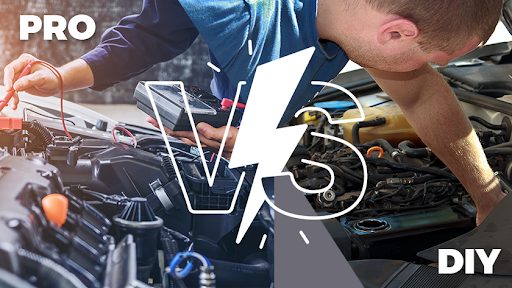When it comes to choosing between DIY and professional car repair techniques, car owners often find themselves in a dilemma. Both options have their own set of advantages and disadvantages. Having a clear understanding of the differences between DIY and professional car repair can help car owners make an informed decision about how to proceed with repairing their vehicles. In this article, we will explore the distinctions between DIY and professional car repair services, allowing you to choose the option that best fits your needs and preferences.
DIY Car Repairs
DIY car repairs involve taking care of and maintaining your vehicle on your own without the assistance of a professional mechanic. Many drivers opt for this approach due to the potential cost savings and the sense of satisfaction and confidence that comes from repairing their car independently. However, DIY car repair comes with its own set of pros and cons.
Pros of DIY Car Repair
Cost Saving: One of the major benefits of DIY car repair over professional services is the cost savings it offers. By doing the repairs themselves, car owners can avoid the expenses associated with professional workshops, giving them both financial independence and savings.
Flexibility and Convenience: DIY car repair allows for flexibility and convenience, as car owners can work on their own schedule without having to wait for an appointment with a certified service advisor. While it’s ideal for minor issues, more complex problems may still require the expertise of a professional workshop.
Reliable Customizing Options: DIY car repairs provide car owners the opportunity to customize their vehicles independently. However, using aftermarket parts may not be as reliable as professional mechanics who use warranted spare parts and specialized tools. DIY car repair offers a sense of accomplishment and pride in customizing the vehicle.
Cons of DIY Car Repairs
Despite its advantages, DIY car repair also has its drawbacks, including:
Lack of Expertise: DIY car repairs lack the technical knowledge and skills found in professional mechanics, which can lead to challenges in predicting and diagnosing issues, potentially causing further damage to the vehicle.
Time and Effort: DIY car repairs can be time-consuming and require significant effort, especially for unfamiliar and complex tasks that may necessitate specialized tools and equipment. Performing like a professional mechanic requires time, effort, and skill.
Limited Resources: DIY car repairs may face challenges due to limited resources, tools, and specialized environments, lacking repair manuals and the guidance of experienced mechanics.
Professional Car Repair Services
Professional car repair mechanics possess the knowledge, certification, and expertise to easily diagnose and address technical problems, providing high-quality solutions for minor and major issues in vehicles.
Access to Tools and Equipment: Professional workshops are equipped with specialized tools and equipment that enable service advisors to efficiently handle challenging tasks, reducing downtime and improving work efficiency.
Warranty Protection: Auto repair mechanics offer warranted protection and spare parts, covering costs within the warranty period and protecting customers from unexpected expenses, ensuring worry-free driving.
Cons of Professional Car Repair Services:
Higher Cost: The cost of professional car repair services may not be suitable for all customers, particularly for extensive repairs and maintenance that involve labor fees and profits from spare parts.
Dependency: Professional car repair services may create a dependency on external resources for addressing major issues that DIY repairs may not be equipped to handle, requiring the expertise of car repair advisors.
Risk of Overcharging: There is a risk of overcharging by some mechanics, leading to unnecessary expenses for customers who may not have a comprehensive understanding of automotive repair.
In conclusion, when deciding between DIY and professional car repair, it is important to weigh the pros and cons of each. While DIY repairs can address minor issues at home, professional workshops are better equipped to tackle major technical problems. Understanding the limitations and advantages of both options is crucial in making a decision that aligns with your needs and preferences.






